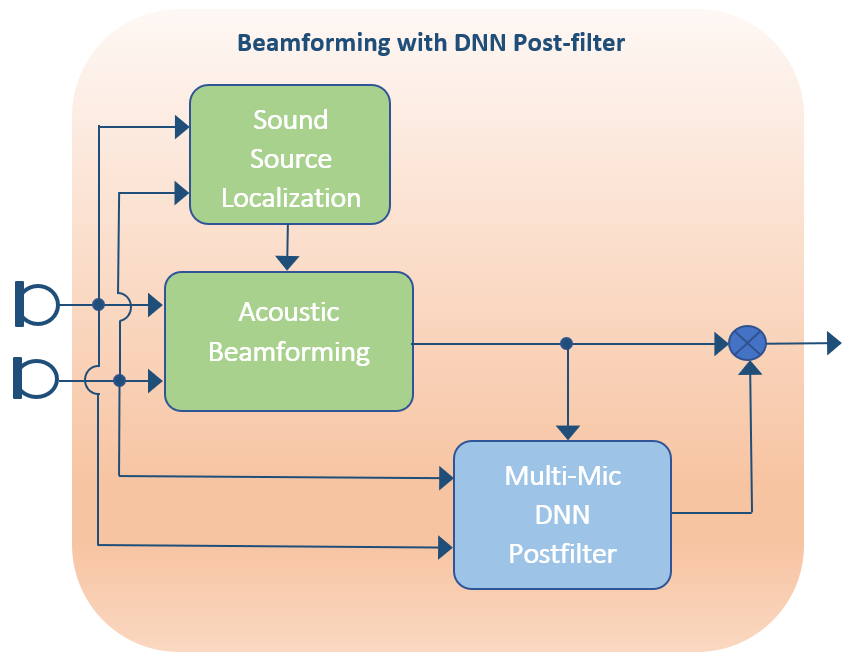Beamforming post-filters are a non-linear speech enhancement module applied to a linear beamforming output. Beamforming post-filters are used because uncorrelated noise and estimation errors of the direction of arrival estimation degrades the performance of beamformers, such as MVDR. Beamforming post-filters can be generalized as multi-mic noise reduction algorithms, and include solutions such as the multichannel Wiener filter (MWF). The MWF extends the single channel Wiener filter for noise reduction. Now, the noise components include not only estimates of the uncorrelated additive noise, but coherent interfering noise sources as well.
However, just like single channel Wiener filters, MWF suffers from estimation errors of the desired and noise components leading to distortions to the desired signal. The application of Deep Neural Networks (DNN) for single channel speech enhancement has been paradigm shifting. The performance of many solutions achieves higher signal to noise ratio improvements and lower signal distortions. To obtain the greatest benefit in the multichannel framework, the DNN must utilize all input signals. A single channel DNN applied to a beamforming output will save on computational complexity and will enhance the speech. However, if there is an interfering speech signal, it will not be able to disentangle it from the desired speech. A multi-channel DNN will be able to map the sound sources to different spatial domains to provide superior speech separation and enhancement compared to classical beamforming post-filters.
